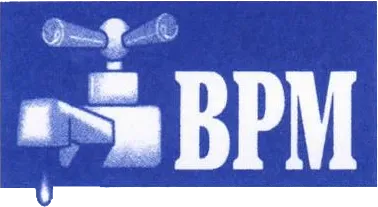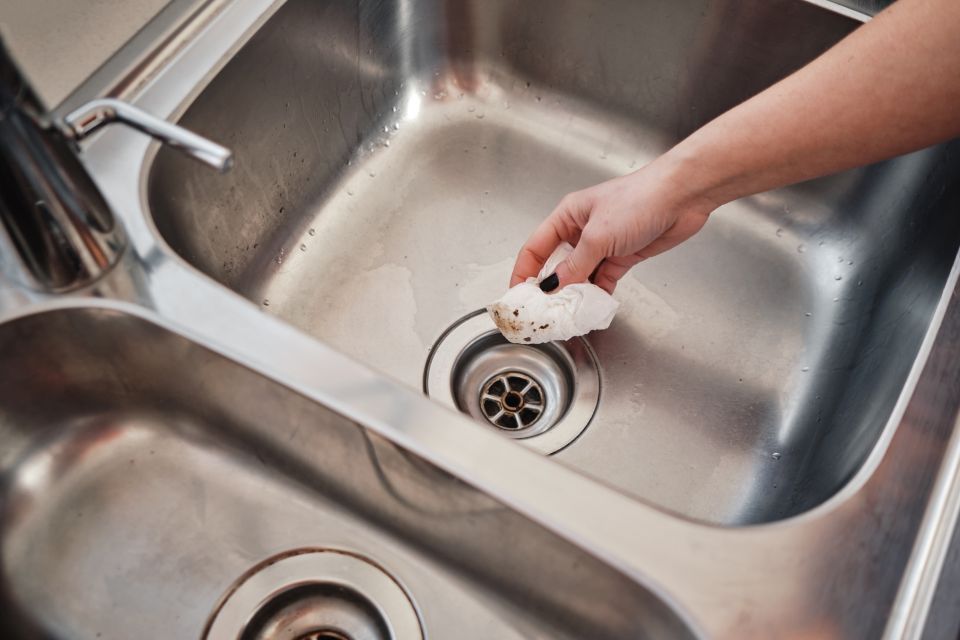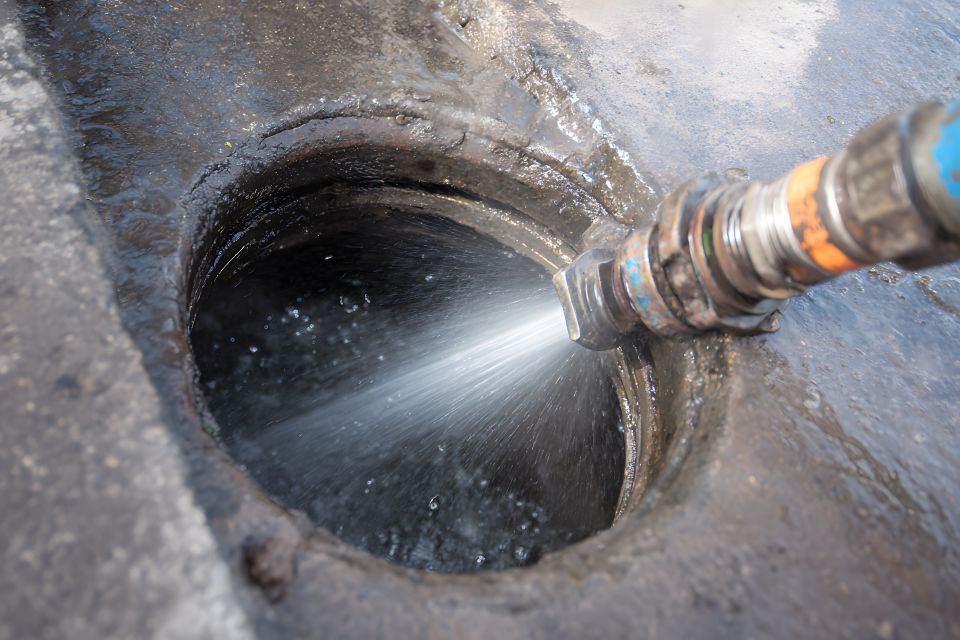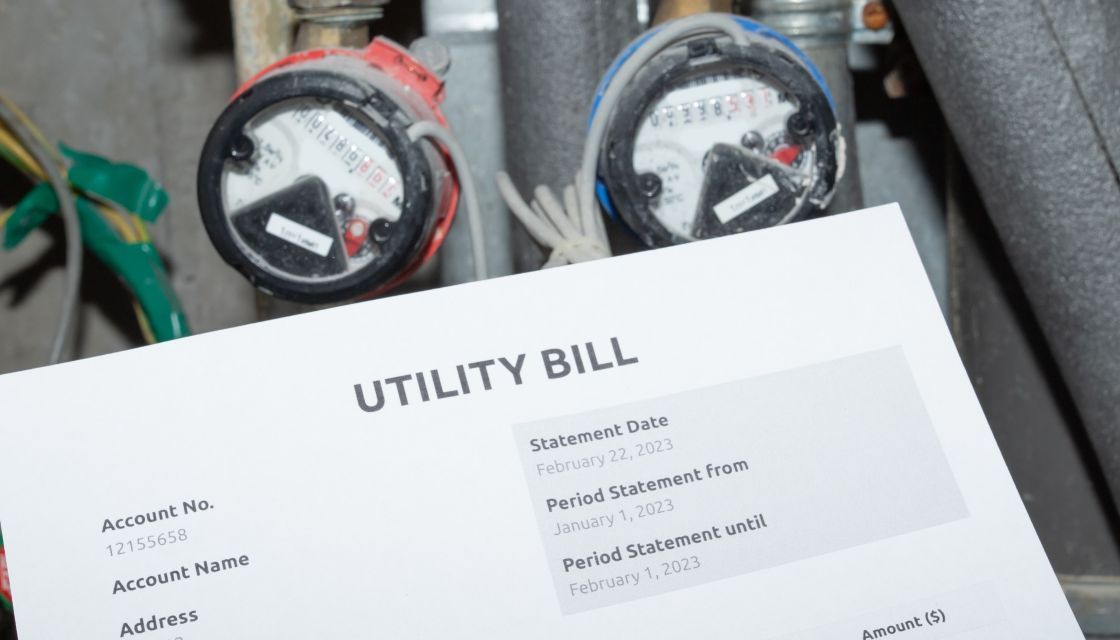Why Does My Kitchen Sink Smell?
There’s nothing worse than walking into the kitchen and being hit with a foul smell coming from the sink. You scrub the benchtops, take out the rubbish, light a candle – but that lingering odour still hangs around. A smelly kitchen sink is a common problem in many homes, and while it can be frustrating, it’s usually a sign of something simple going on inside your drains. The good news is that once you know what’s causing the smell, there are straightforward ways to fix it and keep your kitchen fresh.
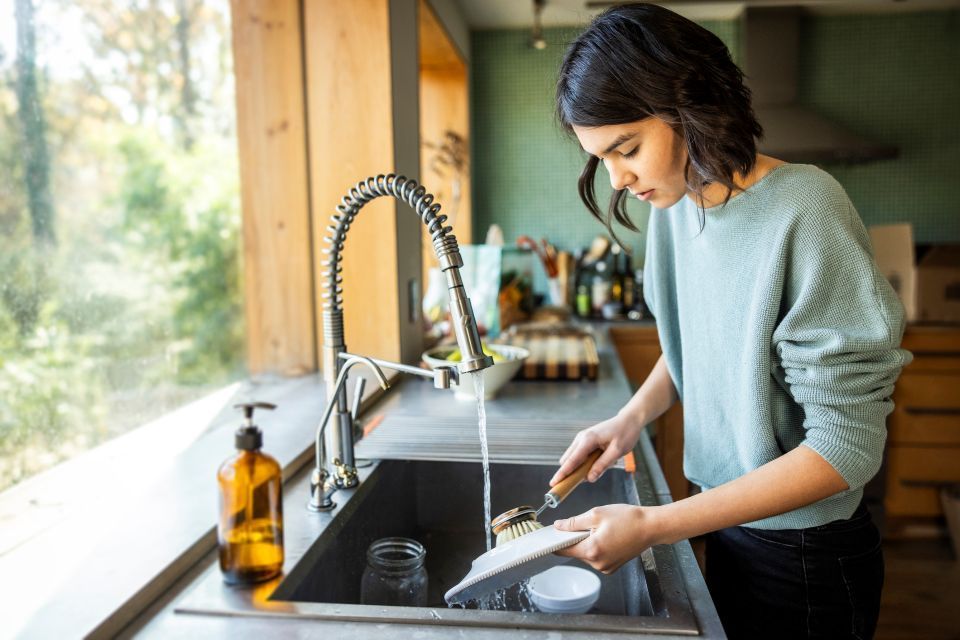
The Most Common Reasons Your Sink Stinks
A smelly kitchen sink usually isn’t a mystery once you know what to look for. Here are the most common causes:
Food scraps and grease stuck in the pipes
When small bits of food and greasy residue get washed down the drain, they can cling to the sides of your pipes. Over time, they start to rot and give off that sour, rotten smell.
A blocked or dirty drain
If your drain is slow to clear or has water pooling in the sink, chances are you’ve got a partial blockage. Stagnant water mixed with old food is a recipe for bad odours. If you are in Adelaide, call Best Plumbing Maintenance on (08) 8261 0165 for blocked drains Adelaide.
A dry P-trap
The P-trap is the U-shaped bend in the pipe under your sink that normally holds water to block sewer gases. If it dries out (often in sinks that aren’t used much), those gases can escape straight into your kitchen.
Garbage disposal troubles
For homes with a garbage disposal, rotting food can build up inside the unit, especially if it hasn’t been cleaned properly. The smell can be strong and hard to ignore.
Mould and bacteria growth
Warm, damp spaces like drains are perfect breeding grounds for bacteria and even mould. Both can create a musty or sour smell that lingers every time you run the tap.
Quick Fixes You Can Try at Home
Not every smelly sink needs a plumber right away. In many cases, you can freshen things up with a few simple tricks:
Flush it with hot water and dish soap
Boil the kettle and pour the hot water slowly down the drain with a squirt of dishwashing liquid. This helps break down greasy build-up and washes away loose food scraps.
Try baking soda and vinegar
Sprinkle half a cup of baking soda into the drain, followed by a cup of white vinegar. Let it fizz for a few minutes, then flush it with hot water. This natural cleaner helps neutralise odours and clear light blockages.
Clean your garbage disposal (if you have one)
Drop in a few ice cubes and a handful of citrus peels, then run the disposal. The ice knocks food off the blades, while the citrus leaves a fresh smell.
Refill the P-trap
If your sink hasn’t been used for a while, the P-trap may have dried out. Simply run the tap for a minute to refill it and block sewer gases from coming up.
Scrub around the drain
Don’t forget the sink surface. Give the drain cover and surrounding area a good scrub with an old toothbrush and disinfectant – bacteria here can also cause lingering smells.
Keep the Smells Away for Good
Once you’ve cleared the odour, the next step is making sure it doesn’t come back. A few small habits can go a long way in keeping your kitchen sink fresh:
Rinse with hot water after washing up
A quick blast of hot water helps push food particles and grease further down the pipes before they get a chance to stick.
Keep fats and oils out of the sink
Pouring oil, butter, or cooking grease down the drain is one of the fastest ways to cause smells and blockages. Instead, collect them in a jar or container and pop it in the bin.
Clean your disposal regularly
If you’ve got a garbage disposal, run it often and keep it clean. A quick flush with ice and lemon once a week can stop food from sitting around too long.
Use a sink strainer
Strainers catch scraps before they slip into the drain. Empty them daily to avoid bad smells building up.
Book in routine plumbing maintenance
Even with good habits, drains can collect residue over time. A professional check-up every so often helps keep things flowing and smelling fresh.
When the Smell Means Trouble
Sometimes no amount of scrubbing or home remedies will get rid of that awful odour. If the smell keeps coming back, it could be a sign of a bigger plumbing problem. Here’s when it’s time to call in a professional:
The stink keeps coming back
If you’ve tried cleaning and flushing the drain but the smell returns within days, there may be a deeper blockage or build-up further down the pipes.
Signs of a sewer line issue
A strong sewage smell that doesn’t go away can point to a cracked or damaged sewer line. This isn’t something you can fix yourself and needs urgent attention.
Multiple drains start smelling
If not just the kitchen sink but also the bathroom or laundry drains are starting to stink, the problem could be in your main drainage system.
The odour spreads through the house
A faint smell in one sink is usually minor, but if it’s strong enough to drift into other rooms, that’s a clear red flag.
Final Thoughts
A smelly kitchen sink is more than just unpleasant – it’s a sign that something isn’t quite right in your pipes. The good news is that most odours come from simple issues like food scraps, grease, or a dry P-trap, and these can often be fixed with quick DIY solutions. But if the smell keeps coming back, spreads through the house, or points to a bigger plumbing problem, it’s best not to ignore it.
If you’re in Adelaide and need expert help, call
Best Plumbers Adelaide. Our team can quickly find the cause of the smell and fix it for good, so your kitchen feels fresh again.
